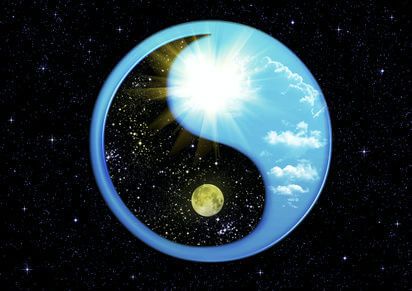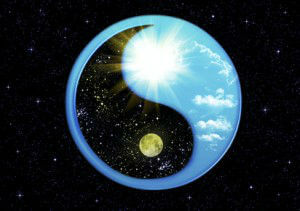
One of the cornerstones of traditional Chinese medicine is the theory of qi. Originally a word for air, qi was extended to a philosophical principle that symbolizes the ancient substance which is thought to be the essence of all things.
A common English translation of qi is ‘vital energy,’ although this definition is narrow according to some scholars. In traditional Chinese medicine, all activities that are a part of life, including physical actions, thoughts and emotions, are based on the flow patterns of qi. Qi is thought to exist in the natural environment, as well as within the body.
Ancient Chinese theory dictates that in order to be healthy, the body must be in harmony with the laws of nature. It follows that qi must flow in a natural way throughout the body in order for the body to thrive, unencumbered by obstacles. Growth and change through the flow of qi is referred to as ‘qi hua.’
The qi that exists within the human body has two general sources. One source is qi inherited from one’s parents. The other source is the food, water and oxygen that one takes in throughout life. This can be conceptually tied to modern psychology’s nature and nurture theory, both being paramount in shaping an individual.
Inside the body, qi is responsible for the proper functioning of each organ and system. The theory is that if qi is weak or lacking in a specific part of the body, poor health will stem from that area. Qi is said to be warming, so a cold body temperature may indicate a deficiency of qi. Qi also has a connotation of a sort of government, as it keeps the blood and other bodily fluids flowing properly.
Qi, as it manifests within the body, is divided into four primary types. The first is primordial qi, also known as genuine qi, which is the most innate kind. Primordial qi is thought to be stored in the kidney. The second is pectoral qi, which is stored in the chest, and is received mainly from fresh air and food.
The third is nourishing qi, which is associated with the blood, and is also received primarily from food, and the fourth is defending qi, which moves through the channels of the body protecting it from harm. The circulation of defending qi is associated with sleep patterns, as it is thought to do much of its defensive work during sleep.
 Kaibara Ekken, a seventeenth-century Japanese scholar known as the ‘Aristotle of Japan,’ explored the significance of qi and its wide applications for humanity in his book, The Record of Great Doubts. In this book, he talks about the role of qi in engaging with nature, society and fellow human beings.
Kaibara Ekken, a seventeenth-century Japanese scholar known as the ‘Aristotle of Japan,’ explored the significance of qi and its wide applications for humanity in his book, The Record of Great Doubts. In this book, he talks about the role of qi in engaging with nature, society and fellow human beings.
Ekken saw qi as a fundamental principle in fostering moral awareness, social and political harmony and sustainable agriculture.
Qi is, at its core, a concept of connectivity to all things, and of moving with natural patterns and changes – rather than working against them – to promote health. Essentially, the more in tune with nature we are, the healthier we will be.
-The Alternative Daily
Sources:
http://religiousstudies.yale.edu/philosophy-qi-record-great-doubts
http://www.china.org.cn/english/MATERIAL/185381.htm
http://www.acuhealing.com/tcmtheory/whatisqi.htm

